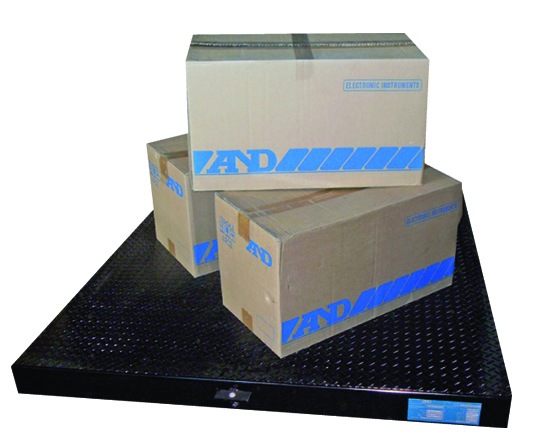In the world of Commercial businesses and logistics companies, precision and durability are non-negotiable. Commercial scales play a crucial role in ensuring that operations run smoothly, efficiently, and accurately. They are indispensable tools in various sectors, from manufacturing and agriculture to logistics and warehousing. Understanding the importance of Commercial scales and how to choose and maintain them can significantly impact your business’s bottom line.
Types of Commercial Scales
Platform Scales
Platform scales are versatile and commonly used in warehouses, manufacturing plants, and shipping docks. They are designed to weigh heavy items and large quantities efficiently. These scales are often equipped with digital displays for easy reading and can handle significant weight capacities, making them ideal for bulk weighing.
Crane Scales
Crane scales are used for weighing heavy loads that are suspended in the air. Common in industries like construction and shipping, these scales are essential for ensuring that cranes and other lifting equipment do not exceed their weight limits. Crane scales are built to withstand harsh environments and provide accurate readings even under challenging conditions.
Medical Scales
Medical scales are essential tools used in healthcare settings for accurately measuring a patient’s weight, height, and other vital statistics. These scales come in various types and sizes, designed for specific medical purposes. From basic physician scales to advanced bariatric scales, these devices play a crucial role in monitoring patients’ health and treatment progress.
Factors to Consider When Choosing a Commercial Scale
Precision
Accuracy is paramount when selecting a commercial scale. The right scale should provide precise measurements to ensure that your business operations are efficient and compliant with industry standards. Look for scales with high-resolution displays and advanced sensors to achieve the best accuracy.
Durability
Commercial scales must withstand rigorous use and harsh environments. Consider scales made from high-quality materials such as stainless steel, which offers resistance to corrosion and wear. Durability ensures that your investment will last longer and require fewer repairs or replacements.
Capacity
The scale’s capacity should align with your specific needs. Whether you need to weigh small components or large vehicles, ensure the scale can handle the maximum weight you expect to measure. Overloading a scale can lead to inaccurate readings and potential damage.
Ease of Use
User-friendly interfaces and easy-to-read displays are essential for efficient operation. Scales with intuitive controls and clear readouts reduce the likelihood of user error and improve overall productivity.
Connectivity
Modern Commercial scales often come with connectivity features, such as Bluetooth or Wi-Fi, allowing for seamless integration with other systems. This connectivity can enable real-time data transfer and better inventory management.
Maintenance of Commercial Scales
Regular Calibration
Calibration is crucial to maintain the accuracy of your scales. Regular calibration checks should be part of your maintenance routine to ensure that your scales provide precise measurements consistently.
Cleaning
Keeping your scales clean is essential for their longevity and accuracy. Remove any debris, dust, or residues that may accumulate over time. Use appropriate cleaning agents that do not damage the scale’s components.
Inspections
Regular inspections can help identify potential issues before they become major problems. Check for signs of wear and tear, damage to load cells, and ensure that all connections are secure.
Professional Servicing
Engage professional servicing for your scales at regular intervals. Certified technicians can perform thorough maintenance, recalibrate your scales, and address any technical issues to keep your equipment in optimal condition.
The Role of Commercial Scales in Logistics and Manufacturing
Real-Life Applications
Logistics
In the logistics sector, commercial scales are used to weigh packages, pallets, and entire vehicles. Accurate weighing ensures compliance with transportation regulations, helps in optimizing load distribution, and reduces the risk of overloading, which can prevent accidents and fines.
Manufacturing
In manufacturing, precise ingredient measurements are critical for product quality. Commercial scales help in maintaining consistency in production processes by ensuring that raw materials and components are measured accurately. This precision leads to better product quality and reduces material wastage.
Future Trends in Commercial Scales
Smart Scales
The future of commercial scales lies in smart technology. AI and IoT integration are making scales smarter, enabling predictive maintenance, real-time data analytics, and remote monitoring. These advancements can lead to more efficient operations and reduced downtime.
Enhanced Connectivity
Improved connectivity options, such as cloud-based data storage and advanced communication protocols, are making it easier to integrate scales with other business systems. This integration facilitates better data management and more informed decision-making.
Eco-Friendly Designs
Sustainability is becoming a key focus in commercial equipment design. Manufacturers are developing eco-friendly scales made from recyclable materials and energy-efficient components, reducing the environmental impact of Commercial operations.
Also Read: Commercial Scales: Your Ultimate Guide to Precision and Durability in Weighing
Conclusion
Investing in high-quality, accurate commercial scales is essential for businesses in logistics and manufacturing. These scales not only ensure precision and efficiency but also contribute to the overall safety and compliance of your operations. By understanding the different types of scales, factors to consider when choosing them, and best practices for maintenance, you can make informed decisions that benefit your business. As technology continues to evolve, staying updated on the latest trends in commercial scales will keep your operations ahead of the curve.

